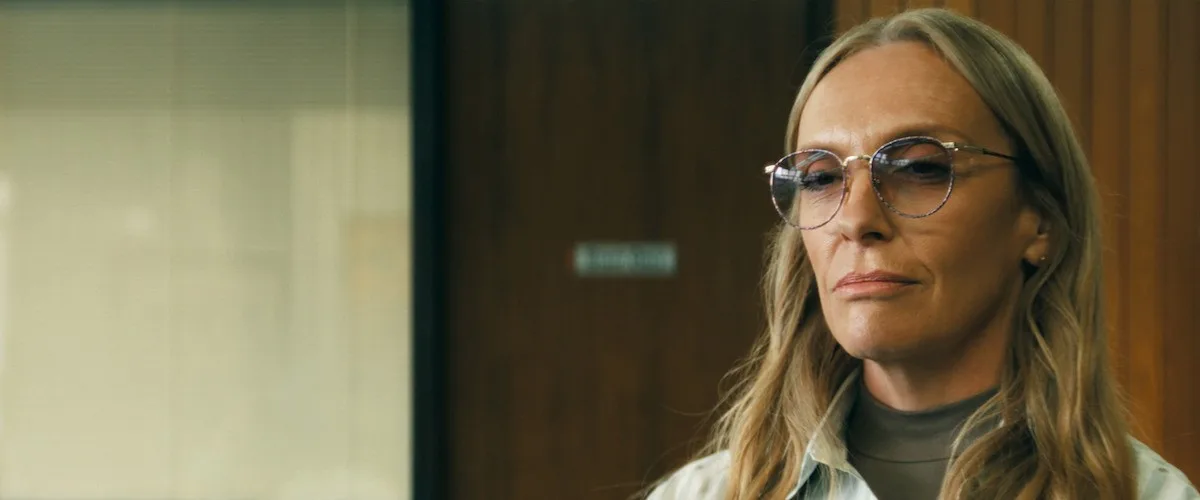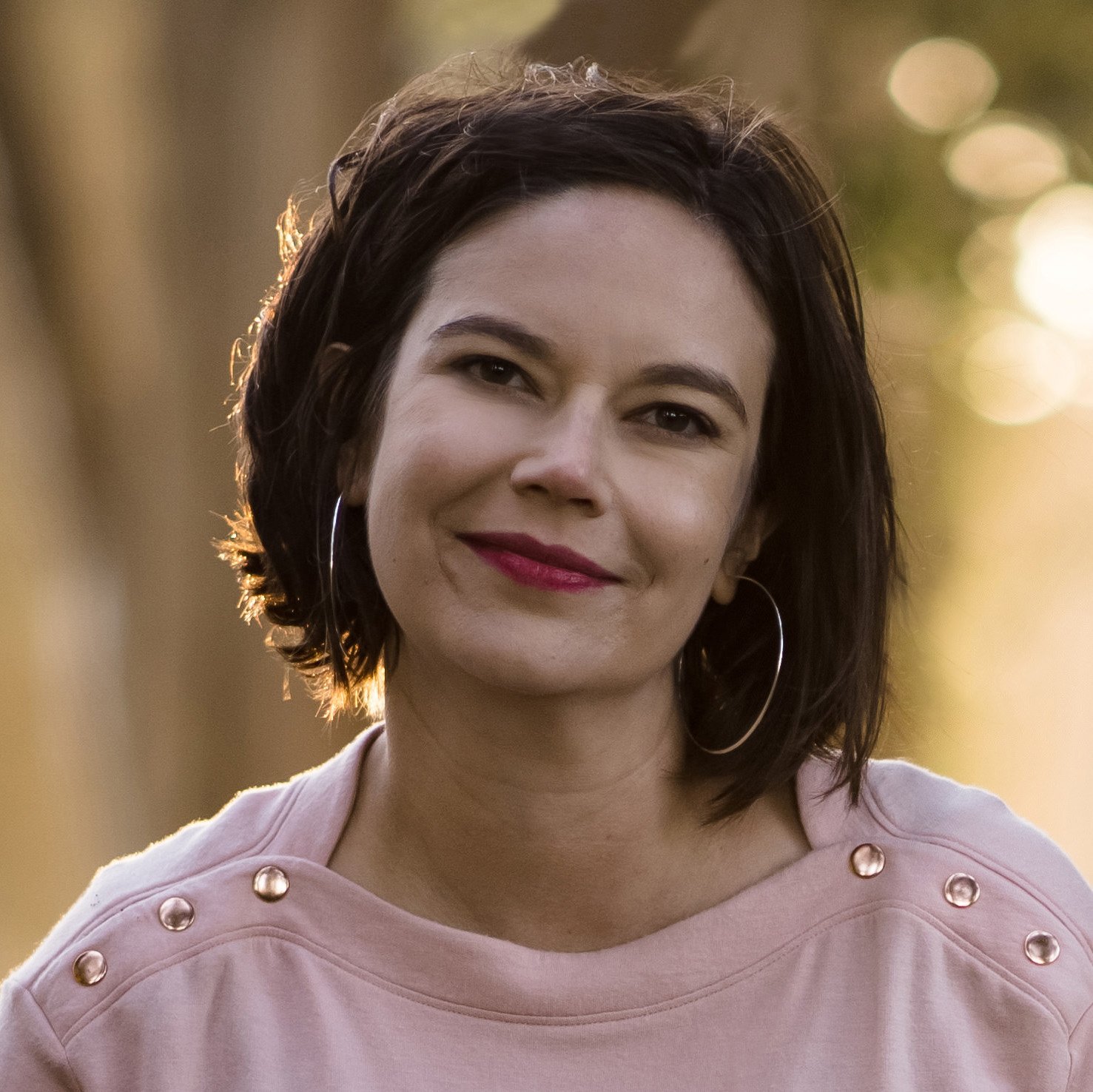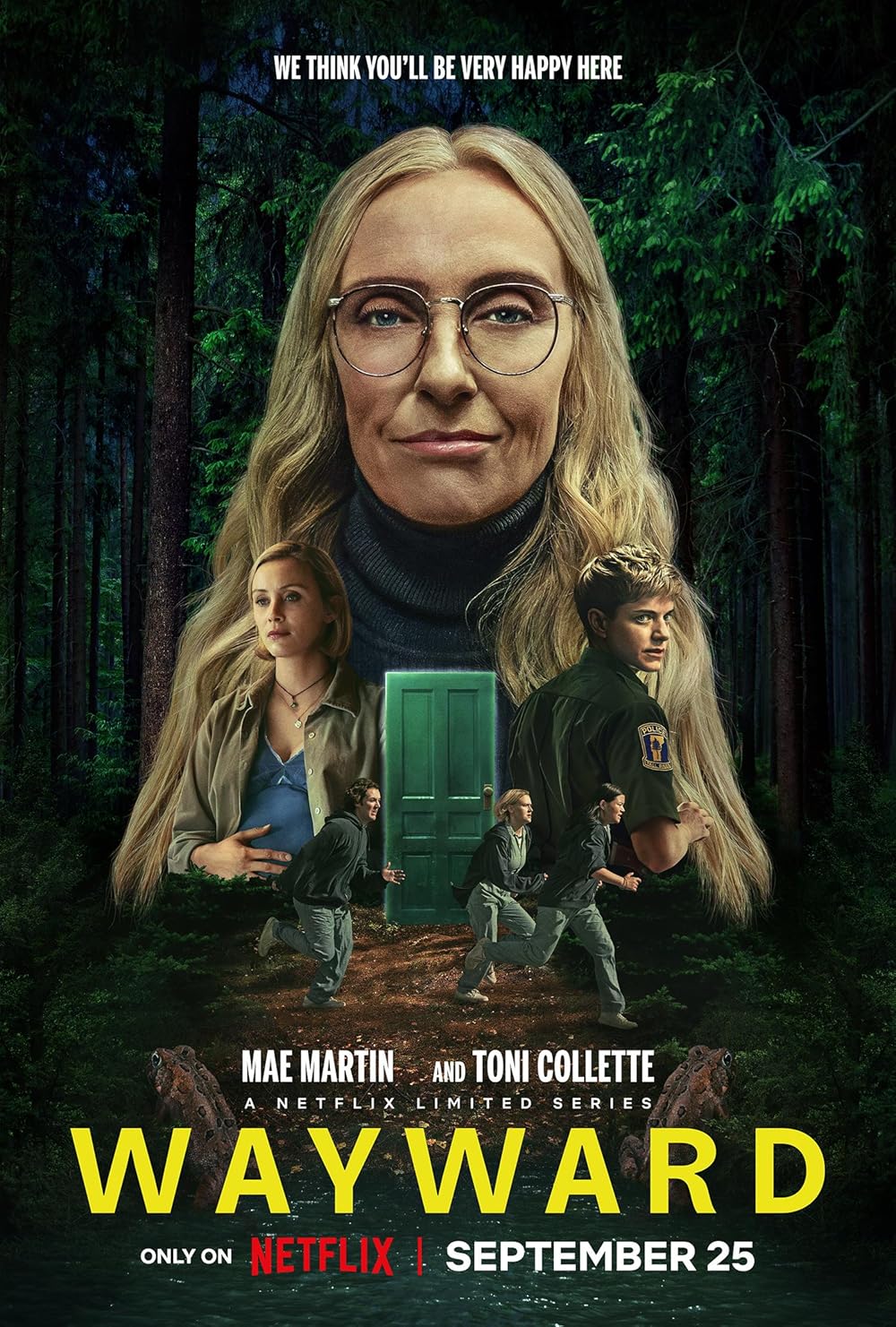A creature feature can excel at building suspense, but if the monster is lackluster, then the whole thing feels like a waste. Netflix’s “Wayward” isn’t exactly a horror series (it’s more suspenseful than scary), but there are plenty of the same elements—cults, mind control, death, and problems.
It all starts when a lovely, white queer couple return home to pregnant Laura’s (Sarah Gadon) hometown of Tall Pines. Although perhaps not “home,” because her real tie there is having attended the local boarding school for “wayward” teens (get it?), run by an eccentric and self-assured Evelyn (Toni Collette, always a pleasure).
Laura’s husband Alex (Mae Martin) is the resident outsider, even as he joins the police force of this seemingly bucolic and accepting town. When he meets a runaway teen from the school, he just can’t let go of the feeling that Evelyn is up to something terrible: that even as happy graduates populate the town, the school is damaging generations of young people, from Laura to current residents Abbie (Sydney Topliffe) and Leila (Alyvia Alyn Lind).
Now, the casting here is strong. Gadon oscillates between earth mother and suspect in Alex’s investigation, perfectly weaving both threads. Meanwhile, Martin is both deeply sympathetic as a trans man trying to assert his identity in a new town and troubling as a cop who’s prone to violence and getting away with it.
The teens are particularly phenomenal, embodying both their characters’ budding independence while also revealing how Abbie and Leila are still children, even if they no longer want to be. Leila is the troubled girl from a bad family who’s potentially corrupting Abbie. They have that intense female friendship that deserves more time on screen. Thankfully, “Wayward” creators Martin and Ryan Scott take their bond seriously, putting it as close to its center as they can, while still juggling the show’s crowded field of concerns.
And Collette does what she does, although she doesn’t ever feel as ambigious, righteous, or powerful as, say, Nicole Kidman in “Nine Perfect Strangers.” Instead, her Evelyn is more down to earth and literally close to the ground in the tricycle she rides around town. It’s a choice that works until it doesn’t.
In addition to the effective casting, “Wayward” also skillfully utilizes its visuals to enhance its intended sense of dread. It smartly contrasts the beautiful forests and fields of its fictional Northern Vermont town (shot in Ontario) with harder, darker institutional spaces. It uses a door motif that is haunting until it loses its mystery and gets silly.
That’s the pattern in this show. For the first seven episodes, “Wayward” is strong and smart about building suspense, breadcrumbing hints about its central mystery. The plot is propulsive. However, in the finale, the reveal fails to scare, instead dipping into a campy drug sequence and an even more bizarre quandary for Alex and Laura. I don’t want to give anything away, but “Wayward” portrays their ending as a thing of horror—only it could be a utopia if presented with different music and camera angles. Yes, I suppose one person’s paradise can be another’s hell, but this show hasn’t done the work of setting that up. Instead, it all just reads as overly dramatic nonsense. This couple’s problems shouldn’t be in a horror/suspense show at all—it’s just regular interpersonal conflict, so what are we even doing here?
That final episode, like so many streaming shows before it, also tries to do too much (wrap up enough elements to feel like a conclusion but also set up a second season) and ends up doing neither well.
All of which is a significant letdown after the earlier episodes, which seemed to drive toward something so quickly. Instead, “Wayward” goes nowhere. And really, it could have gone somewhere. Because the whole “troubled teen” industry has proven itself to be quite horrific, which anyone who glances at Paris Hilton headlines may remember. There’s real and terrible abuse at these places that this show could have dramatized. But instead, it skips quickly over those elements and instead concocts something that feels static and implausible as its central mystery, ending with a whimper for all of its adult cast (the teens fare better).
It doesn’t help that the show’s worldview further complicates the whole endeavor. Tall Pines is a matriarchy, led by Evelyn, to the point where the school’s sign features a woman’s figure in the center, surrounded by smaller figures around her. It’s visually arresting, so different than what we normally see. But of course, this model of female leadership is rotten to the core, and there’s no real interrogation of what that means. Likewise, Alex is the rare trans masc protagonist, but he’s alone in having that identity. So his character bears too much representational weight, with others commenting about his genitalia and his faults casting a shadow over his entire community.
So, I suppose, if you’re going to watch “Wayward,” be warned. You may want to turn it off before the finale and make up your own ending. That way, you can plot a satisfying escape from Tall Pines, where you never have to imagine going back.
Full season screened for review. Now streaming on Netflix.




















